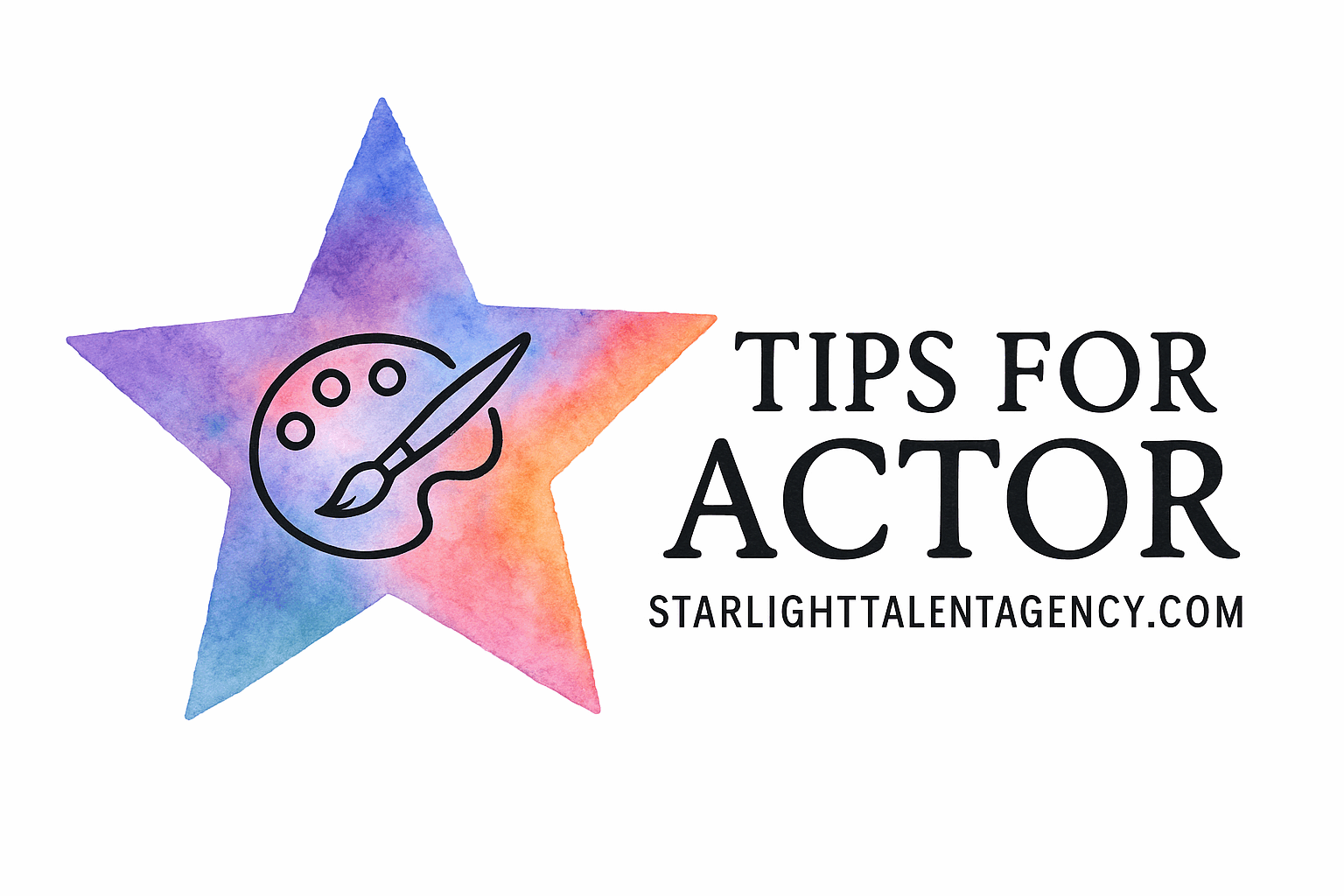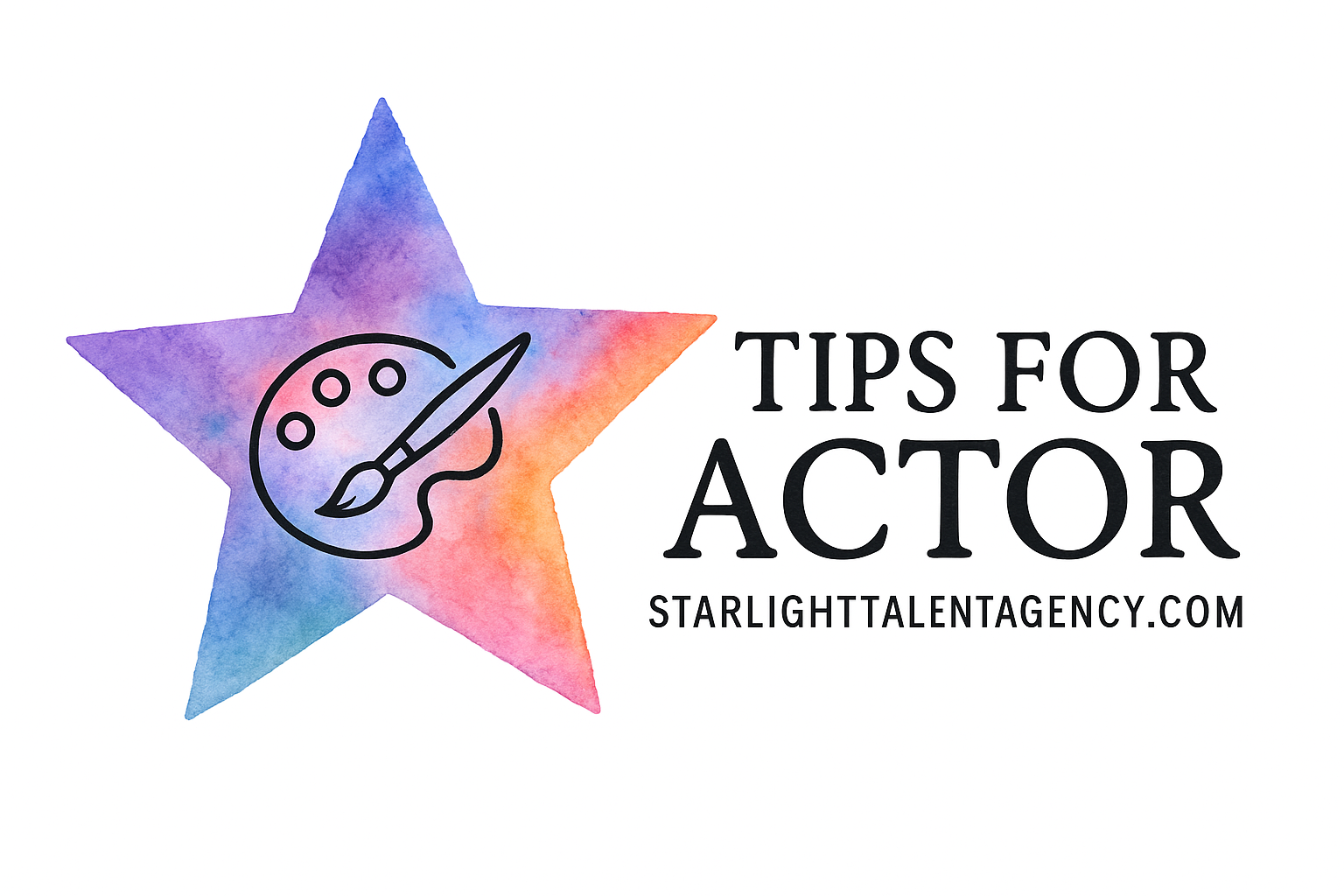Introduction
Auditions can be unpredictable—you never know what scene, script, or twist might come your way. That’s exactly why improvisation is your secret weapon. In this guide, we’ll explore 8 Coaching Tips for Actor Improvisation in Auditions to help you stay authentic, flexible, and memorable under pressure.
If you’re serious about honing your audition craft, check out Audition Preparation Basics to complement these improvisation tips.
Why Improvisation Matters in Acting Auditions
Improvisation shows casting directors that you can think fast and stay true to your character, even when scripts or directions change. It demonstrates creativity, emotional intelligence, and adaptability—key traits for professional actors.
Understanding the Core of Improvisation
Improvisation is the art of trusting your instincts. It’s not about control but authentic reaction. As explored in Advanced Audition Skills, the best actors blend instinct with preparation for magic in the moment.
How Improvisation Enhances Authentic Performance
Improvisation makes your performance feel alive. It strips away the robotic “line delivery” and reveals your character’s emotional truth—something every great character development coach emphasizes.
Coaching Tip #1: Embrace the Unexpected
Improvisation thrives on surprise. Sometimes directors intentionally throw you curveballs during auditions. Don’t freeze—flow with it.
Let Go of Perfection
Perfectionism kills spontaneity. Letting go means embracing human imperfection. It’s what makes a performance believable. Remember, authenticity always beats accuracy.
Learn to React, Not Overthink
React to what’s happening right now. As noted in Acting Confidence, confidence is about being comfortable with uncertainty—not eliminating it.

Coaching Tip #2: Build Strong Listening Skills
Improvisation isn’t only about talking—it’s about listening.
The Power of Active Listening in Acting
Listening transforms how you connect in scenes. When you actively listen, your responses are organic, fluid, and emotionally grounded.
Practical Listening Exercises for Actors
Try Meisner repetition drills or mirror exercises. These sharpen your instincts and help you stay present—skills discussed in Scene Work.
Coaching Tip #3: Use Your Body Language Confidently
Your body is your second script. It communicates before words ever leave your mouth.
Movement and Space Awareness in Improvisation
Be mindful of your physical space. Learn how to use it with purpose—something covered in Stage Presence and Body Acting.
Physical Choices That Exude Confidence
Grounded posture, controlled gestures, and relaxed shoulders instantly project professionalism. Physical confidence sells your performance.
Coaching Tip #4: Practice Emotional Flexibility
Improvisation requires the emotional agility to switch gears instantly.
Accessing a Range of Emotions Quickly
Tap into sensory memory to access emotions fast. The Expressive Acting approach teaches you to feel, not fake.
Staying Present While Switching Emotions
Stay aware of your partner’s cues and the story’s tone. Emotional honesty always outshines forced transitions.
Coaching Tip #5: Develop Scene Awareness
Every improvised scene still needs structure. Understanding where you are in the story is crucial.
Understanding Scene Context in Improvisation
Even in a spontaneous moment, know your character’s objective. As Script Analysis shows, context gives your performance purpose.
Responding to Partner Energy and Dynamics
Improvisation is a dance. Tune into your partner’s rhythm to create genuine chemistry—similar to insights found in Acting with Partners.
Coaching Tip #6: Strengthen Your Character Work
Improvisation becomes powerful when rooted in strong character understanding.
Know Your Character’s Motivation
Ask yourself: What does my character want right now? Knowing this allows authentic improvisation without losing direction.
Adding Depth Through Spontaneity
Spontaneous quirks or reactions breathe life into your performance. It’s an advanced skill you can refine through Coaching Tips for Actors.
Coaching Tip #7: Master the “Yes, And” Technique
This golden rule of improv keeps the momentum alive.
Building Scenes Through Agreement and Expansion
Always accept and build upon your partner’s offers. “Yes, and…” keeps energy high and the story evolving naturally.
Avoiding Blocks in Improvised Scenes
Avoid saying “no” or rejecting ideas. Blocking stops the creative flow—stay open, curious, and adaptable.
Coaching Tip #8: Stay Relaxed and Present
Your calmness anchors your improvisation. Presence is power.
Breathing Techniques to Calm Audition Nerves
Before stepping in, practice deep breathing or relaxation exercises. The Warm-Up Exercises guide offers excellent pre-audition routines.
Mindfulness Practices for Confidence
Use mindfulness to connect with your body and reduce stress. Being fully present keeps your performance honest and emotionally rich.
Common Mistakes Actors Make in Improvisation
Even talented actors stumble in auditions. Awareness is the first step to improvement.
Overacting and Ignoring Scene Partners
Improvisation is not solo performance. Collaboration keeps scenes real and engaging.
Forgetting the Story’s Purpose
Always serve the story. Every improvisation should move the scene or character forward.
How to Practice Improvisation Before the Audition
Improvisation is a muscle—train it daily.
Daily Exercises for Creative Spontaneity
Try one-word stories, random-object monologues, or environment reactions. Consistent practice builds confidence and flexibility.
Partner Improvisation Drills
Work with a friend or coach. The Self Tape Mastery approach can even be used to record and review your improv sessions.
The Role of a Coach in Improvisation Training
A skilled coach identifies blind spots, helping you reach new creative levels.
Personalized Feedback and Growth Tracking
Coaching provides specific notes that help fine-tune instinct, timing, and character work—crucial for professional growth.
Why Ongoing Coaching Matters for Actors
Improvisation is a lifelong skill. Ongoing training, like Career Growth, keeps you sharp, flexible, and industry-ready.
Conclusion
Improvisation separates good actors from unforgettable ones. By following these 8 Coaching Tips for Actor Improvisation in Auditions, you’ll walk into every room confident, spontaneous, and ready for anything. Stay curious, stay flexible, and let every audition become your playground.
FAQs
1. What’s the most essential skill for actor improvisation?
Active listening—it’s the foundation of genuine, believable reactions.
2. How do I stop overthinking during auditions?
Stay focused on your partner and the moment instead of your inner critic.
3. Do I really need a coach for improvisation?
Yes. A professional coach provides structure and insight you can’t get alone. Visit Coaching Tips for Actors to learn more.
4. How often should I practice improv?
Daily short sessions (10–15 minutes) keep instincts sharp.
5. What if I freeze mid-scene?
Pause, breathe, and use it. Authentic pauses can feel intentional.
6. Can improvisation help on-camera auditions?
Absolutely. It enhances realism and spontaneity—skills vital for On-Camera Acting.
7. How do I handle unexpected audition directions?
Embrace them. That’s your moment to shine through creative flexibility.

